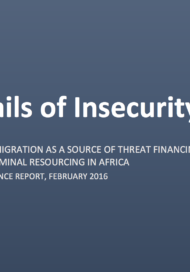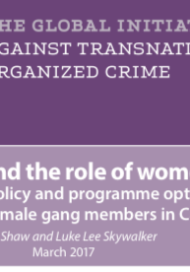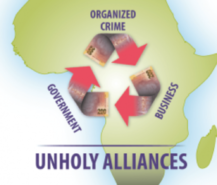Event Details
Posted on 30 May 2016
With the recent spike in the levels of global migration – especially from the Middle East and Africa to Europe – and the growth of profits for illicit criminal networks engaged in smuggling and human trafficking, the potential connection between terrorism, organised crime and armed conflict actors profiting from these migration flows is ringing warning bells.
The evidence basis remains thin but there is an increasing indication that terrorist groups are able to tax migration flows through their controlled territories as much as any other financial flows within their reach (such as drug trafficking), thus destabilising states and undermining state consolidation. Corruption and the complicity of local actors affiliated to the state worsen this situation.
Earlier this year, the Global Initiative against Transnational Organized Crime, together with the Institute for Security Studies and generously supported by the Hanns Seidel Foundation, convened an expert conference entitled Trails of Insecurity – Illicit Migration as a Source of Threat Financing and Criminal Resourcing in Africa.
Expert participants have suggested that the logic which would motivate terrorist groups such as the Islamic State in Syria and the Levant (ISIS, the Islamic State or Daesh), al-Shabaab or Al-Qaeda in the Islamic Maghreb (AQIM) to use the same networks and mechanisms to generate and move illicit money as more conventional criminal networks is compelling. Not only do these groups exhibit the necessary high level of organisation but migration-induced human smuggling currently has also no competition of similar economic value.
Regional dynamics differ, however, depending on common migration routes and local power holders. The report concludes that migration remains a complex problem, and smuggling networks are notoriously difficult and still not well understood. Three points are policy recommendations worthwhile considering:
- Strengthening the evidence basis
- Redressing criminality and criminalisation
- Tackling the root causes to move towards sustainable, regional solutions




